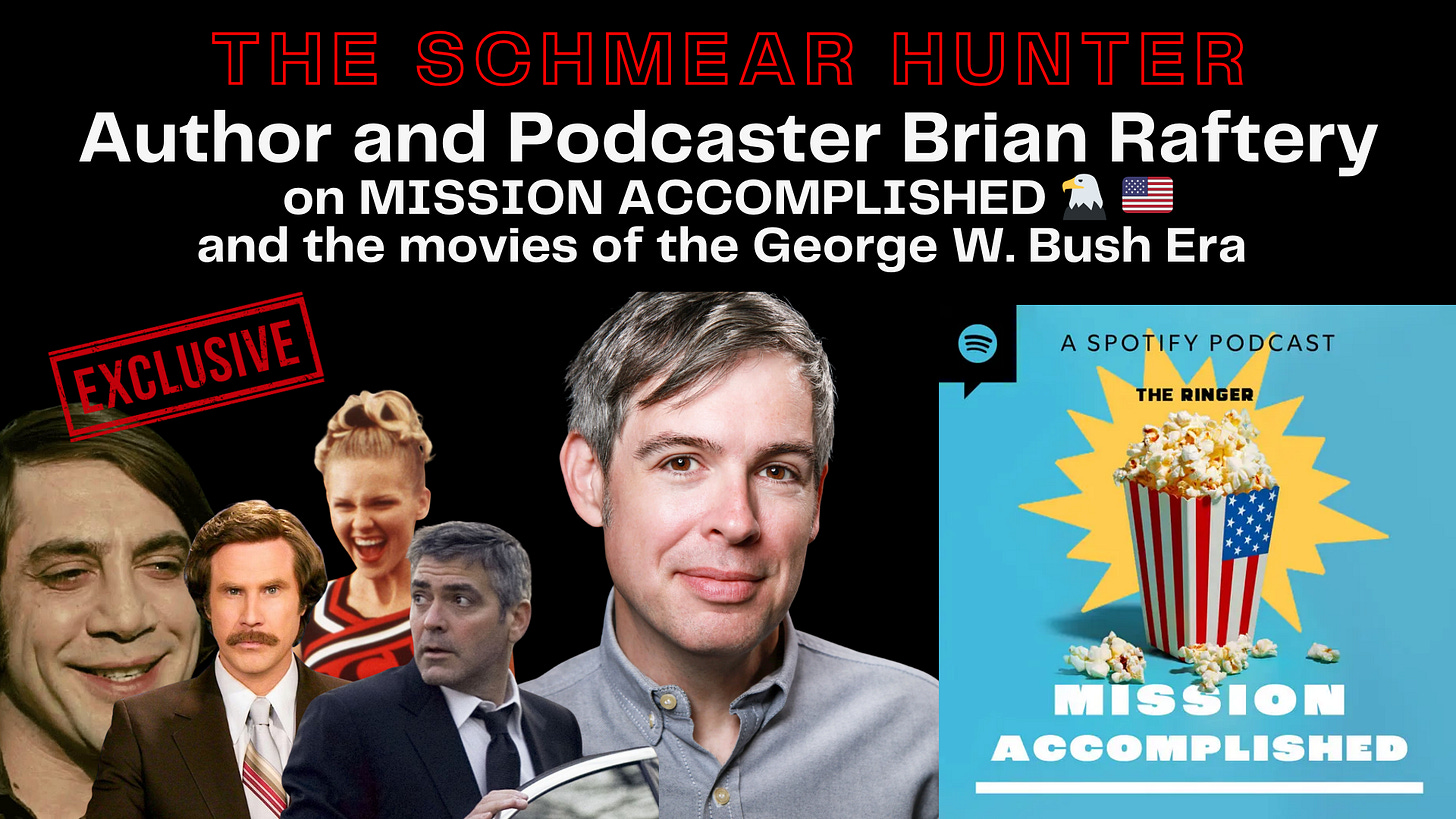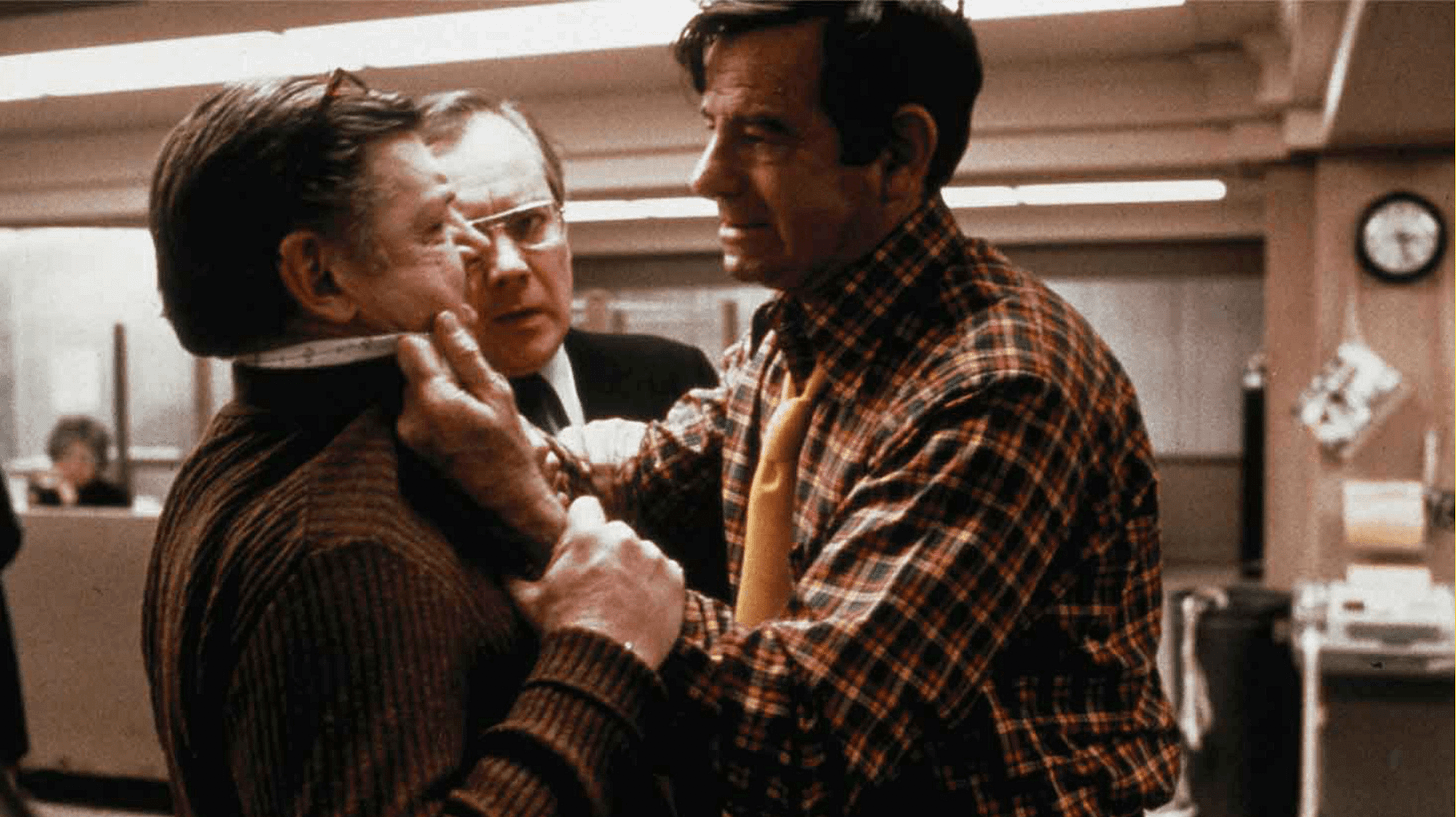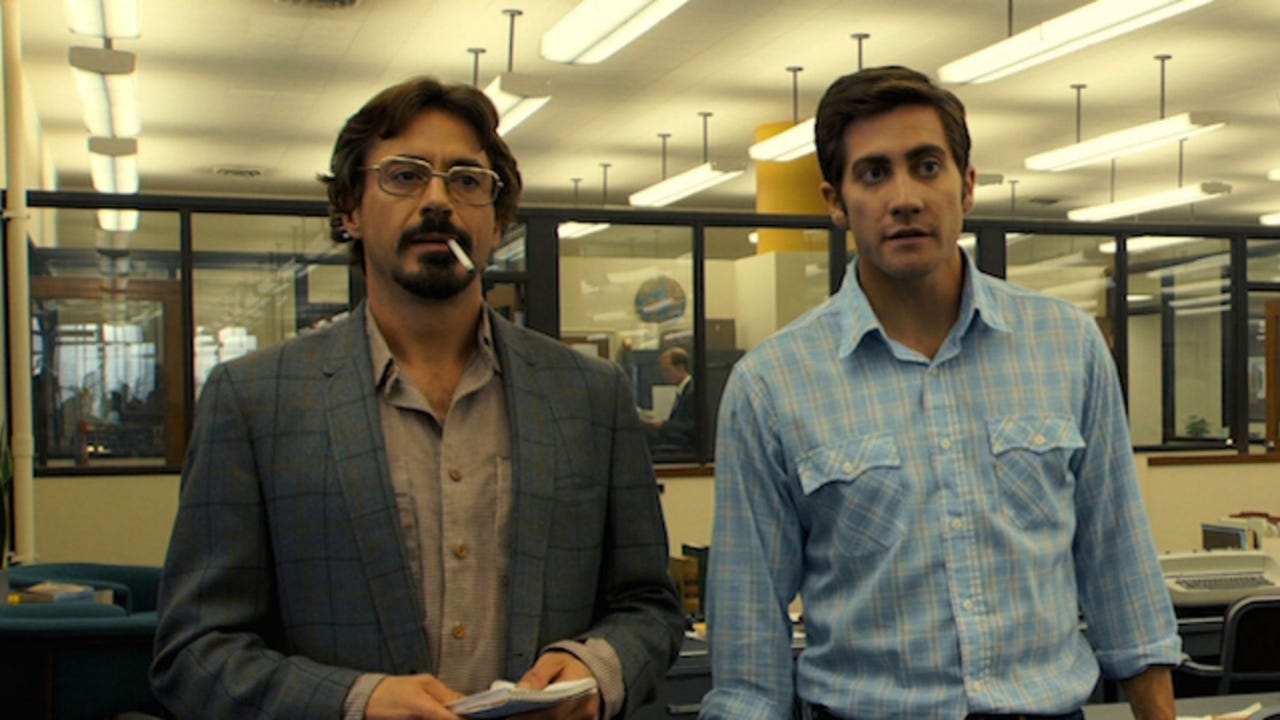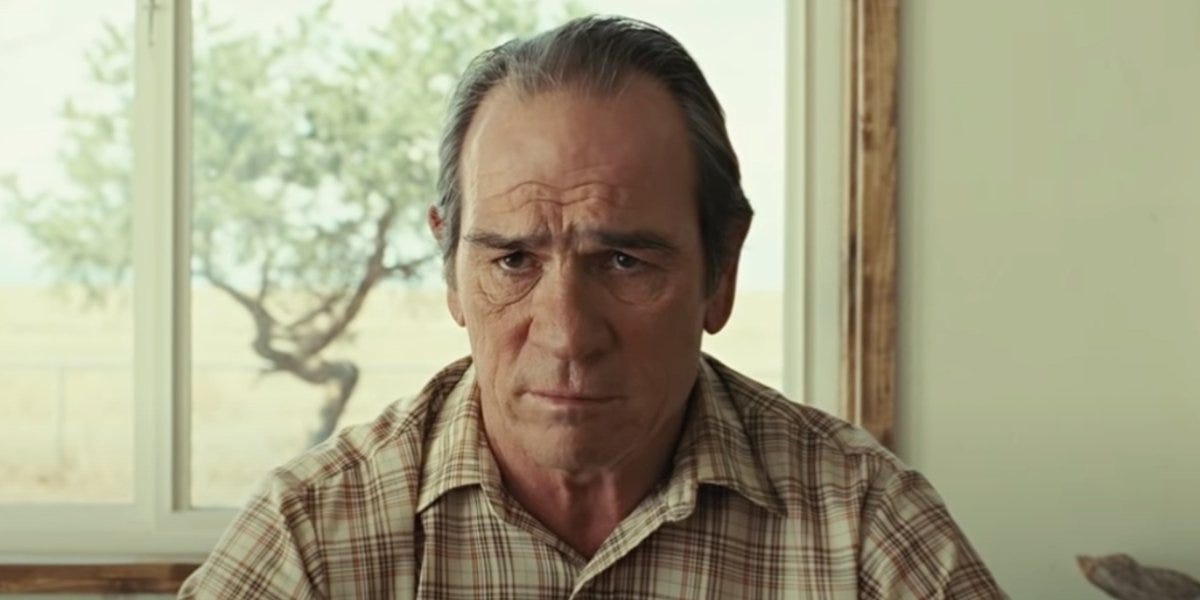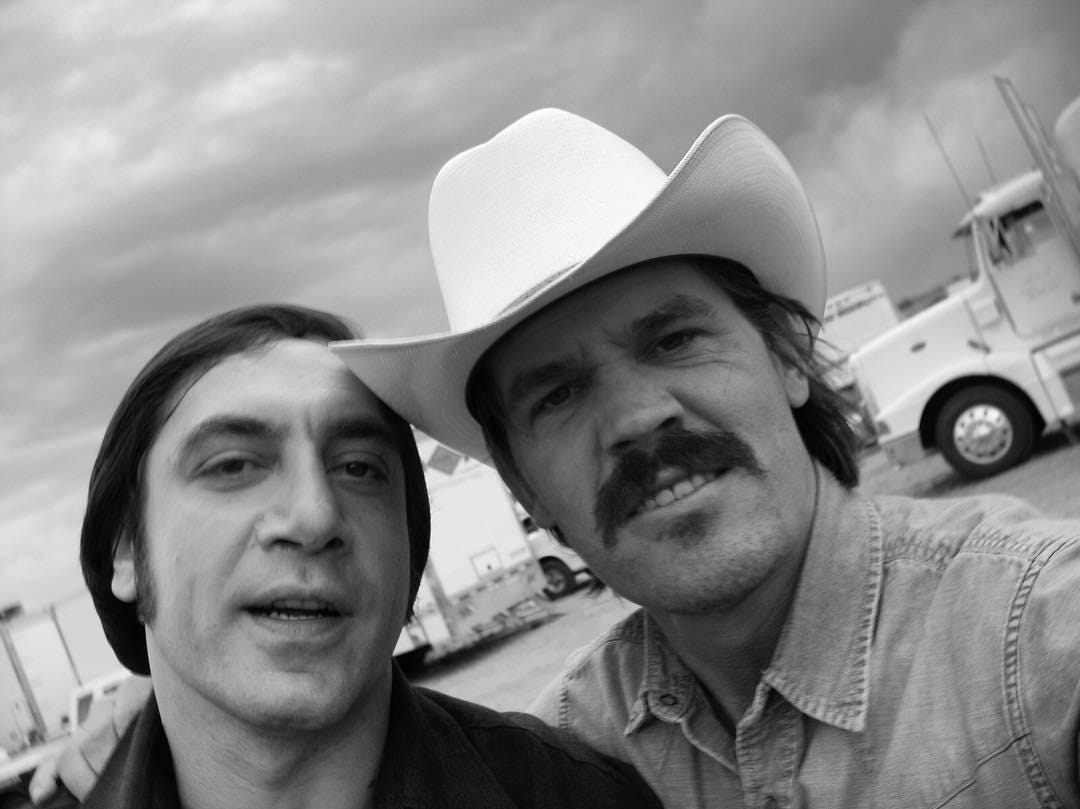From Anchorman to Michael Clayton: Brian Raftery on the Movies of the Bush Years
The creator and host of "Mission Accomplished" discusses the defining films of the aughts
For this upcoming week’s Curtain Call on NO NOTES, we sat down with Brian Raftery—longtime culture writer and author of Best. Movie. Year. Ever. (his deep dive into 1999 in film). You’ve probably read his work in GQ, Wired, or Entertainment Weekly, or heard him on The Ringer’s Big Picture podcast.
His latest project, Mission Accomplished, is a six-part narrative podcast about the movies of the George W. Bush years—a period that gave us everything from Anchorman to Zodiac to Michael Clayton. It was brilliant, informative, and fun.
In this conversation, we cover a lot: Brian’s “no notes” perfect movies, why he thinks Michael Clayton sums up the late 2000s better than anything, how Zodiac accidentally became the first “internet movie,” the Iraq War on screen, the rise of broad comedies, and whether superhero films really did ruin everything. We also play a rapid-fire round on titles like Donnie Darko, The Dark Knight, The Departed, and more.
Brian is one of those guests who can move easily between personal anecdotes and sharp cultural analysis—the kind of person who makes you want to go rewatch ten movies as soon as you’re done talking.
Enjoy!
(The following interview has been edited for length and clarity.)
Schmear
What’s a “no notes,” perfect movie for you?
Brian Raftery
Off the top of my head, The Third Man or The Taking of Pelham 123. Pelham might be my favorite action-comedy-drama ever. You couldn’t change a thing in either. Touch them and you’d ruin them.
Schmear
So you like numbered titles too—Alien 3?
Brian Raftery
Alien 3. Se7en maybe. Not one I’d rewatch now—it still scares me too much. I saw it opening weekend in Pittsburgh, a rainy afternoon matinee. I came back to my dorm depressed and rattled. That movie stayed with me for weeks. It was fantastic but grim, and walking out into a drizzly city afterward was not pleasant.
Sena Adjei
Can you give us the thesis of Mission Accomplished?
Brian Raftery
The show looks at the movies of the George W. Bush era, 2000 through 2009—how they were made and how they reflected America. It was a remarkable time: studios were changing, but we also got Anchorman, Zodiac, Michael Clayton, There Will Be Blood, and No Country for Old Men.
The idea is: in 2000, post-Y2K, America felt optimistic. Movies reflected that—The Patriot, Cast Away. By the time Bush left office, the films were darker, about how broken everything felt. In eight years, we went from Erin Brockovich to Michael Clayton. So the show is part movie history, part cultural history.
Schmear
Is there a single movie you think best encapsulates that era?
Brian Raftery
Hard to pick one. For me, it’s the 2007 trifecta: Michael Clayton, There Will Be Blood, and No Country for Old Men. All three capture that broken-down feeling, capitalism run amok, and people hollowed out. Because the latter two are set in the past, I’d go with Michael Clayton. If you want to understand America at the end of the Bush years, look at Clayton: once idealistic, now compromised, in debt, and stuck at a corrupt firm. That’s the mood. And it’s just a fantastic movie—I’ve never met anyone who doesn’t like Michael Clayton. If I did, I’d be suspicious.
Sena Adjei
You structured the series around the No Country for Old Men line, “You can’t stop what’s coming.” Why is that?
Brian Raftery
It speaks to inevitability—violence, polarization, and history repeating itself. These movies tell the story of 2000s America, but they also remind us none of this is new. We didn’t invent corporate greed or political division. Looking back becomes oddly comforting.
Schmear
That line is disturbing but reassuring.
Brian Raftery
Exactly. It’s humbling. We like to think we live in uniquely crazy times, and maybe we do, but looking at the past shows we’ve been here before.
Sena Adjei
What surprised you most in your research?
Brian Raftery
It wasn’t “I never knew that,” it was “I forgot that.” Stories like Jack Abramoff or Ray Nagin’s corruption during Katrina were front-page news for months but are now barely remembered. I think we collectively put bad stuff behind us as a coping mechanism.
One small thing that floored me: Josh Brolin wasn’t nominated (for Best Actor) for No Country for Old Men. I assumed he was and even wrote it into the script. Our fact-checker corrected me. It’s one of the great performances of the past 20 years.
Schmear
Should we write a spec about There Will Be Blood and No Country filming in Marfa at the same time? Maybe a bar fight between Daniel Day-Lewis and Josh Brolin?
Brian Raftery
That’s almost what started this project. I wanted to do something just about 2007, opening in Marfa while those two films were shooting. They only overlapped for a couple of weeks and barely interacted, but it’s such a flashpoint in movie history. Eventually, with The Ringer, we widened the scope to the whole decade.
Sena Adjei
What movie best encapsulates the Iraq War—whether in spirit or content?
HEY! THERE’S SO MUCH MORE TO GO. Brian’s thoughts on Zodiac, Anchorman, M. Night Shyamalan, Lost in Translation, and if superhero movies “ruined everything.”
To read on, consider upgrading your subscription.



